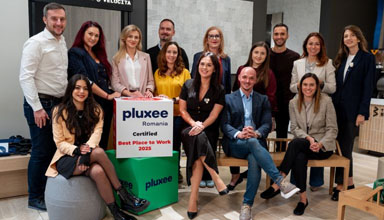
How comfortable is your staff with being themselves in the workplace?
A recent Jobsage survey posed this question to 1,900 employed Americans. They do value being authentic, according to the study. However, 7 in 10 respondents said that they adopt a different personality at work than they do at home.
Even those who weren't hiding or altering some aspect of their identity still needed an extended period of time to be themselves in a new role, with 1 in 5 saying they needed at least six months to feel comfortable being authentic at work.
"Employees who feel psychologically safe (as in, more comfortable being themselves at work) are more likely to put in extra effort to see the team or company's mission achieved," said Kelli Mason, chief operations officer at JobSage, which is an employer review site headquartered in Austin, Texas. "They are also more likely to feel safe enough to push back and ask hard questions, which are ultimately in the company's best interest, even if they initially create uncomfortable or difficult conversations and decisions."
Karl Ahlrichs, SHRM-SCP, a speaker and thought leader on human capital and senior consultant for Gregory & Appel insurance company in Indianapolis, emphasized the importance of recognizing that the impact of inauthentic workplaces on retention and recruitment efforts is not equal. Low performers will grip their chairs and cling to the job, whether they feel comfortable in the workplace or not. But high performers can find new positions elsewhere, and they know it. HR professionals should work to create cultures where employees can be open and honest about themselves and their work, and where leaders and managers are transparent and fair when conflicts arise.
"Having an environment of trust, transparency and accountability is necessary. It's fragile and tough to do but if people feel they can bring their full self, and there is an appropriate response if something gets crosswise, high performers don't leave," he said.
Resignations aren't the only consequence. Work quality and quantity of output are also diminished in inauthentic workplaces.
"When employees feel comfortable bringing more of their identity to work, they are more likely to provide different perspectives and valuable feedback," said Jill Koob, SHRM-SCP, founder of EnergizeHR, an HR consulting company in Houston, Texas. "This creates a more cohesive team and eliminates blind spots that can result in financial and nonfinancial gains."
5 Strategies to Create a Culture That Supports Authenticity
These are five strategies you can use to increase authenticity in your workplace to address high turnover, decreased productivity and poor working relationships.
1. Remain fair and consistent.
Staying fair and consistent is the HR professional's top priority, Alhrichs said. He acknowledged this is not an easy task. Consistency is a relatively rigid set of patterns, and he explained that fairness often means being adaptable. Those objectives can conflict on emotionally charged issues.
"Having an environment where people trust each other so that they can raise their hand and talk diplomatically and objectively about [conflicts] becomes a teaching moment."
2. Lead the way.
Seeing is believing. When HR leaders take the lead by modeling authenticity, employees understand the value of being themselves at work.
Mason said HR professionals can model authenticity by:
- Openly acknowledging times they've failed.
- Taking time off and sharing why it's important to their mental health.
- Embracing and being forthcoming about family obligations that might interfere with work.
"When staff see that the leadership is made up of humans, with flaws and lives outside of work, staff members are more likely to feel a sense of safety in bringing more of themselves to work," she said.
3. Provide civility training.
As politics and social movements have gotten increasingly aggressive and social media has further polarized sides, responses to disagreements must be civil. In addition to having consistent training around core values, Koob suggested including civility training.
"Civility is extremely important for employees to feel safe to be themselves and has been shown to greatly increase productivity," she said.
4. Support active listening.
Ahlrichs said active listening is critical to creating trusting workplace cultures. Active listening is giving full attention and consideration to the person speaking, which demonstrates a mutual understanding and respect for those in the conversation.
"If you have a culture of trust, it is possible to say, 'Hey, you said something at the end of the meeting that really bothered me. You might not have meant it, but I really felt it,' " he said. "When handled as a teaching moment, it can actually strengthen the culture."
5. Focus on inclusion.
People need to feel connected to others to truly be themselves.
"Encourage employees to include co-workers in discussions outside of forced meetings and opportunities for employees to get to know one another," Koob said.
Katie Navarra is a freelance writer based in New York state.
Content in partnership



